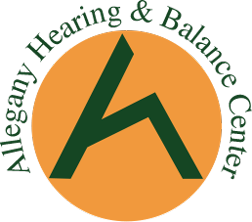Do you — or does someone you love ¬— sometimes have to cancel a night out or leave a birthday party early because of dizzy spells? Do loved ones dismiss it with, “Everyone gets dizzy”? If only they could see what you feel. If only you had the support you need and a way to show others what you’re experiencing.
That’s why Balance Awareness Week was launched.
Balance Awareness Week
Every year during the third week in September, the Vestibular Disorders Association (VeDA) celebrates Balance Awareness Week, a week devoted to raising awareness of the plight of the 69 million U.S. adults 40 and older who at some point will experience balance problems.
VeDA launches social media strategies to try to take awareness viral. Patients create personal pages to share their stories. Tool kits are developed so the message can be taken out into neighborhoods and among policymakers.
It’s all in service to VeDA’s vision: “We envision a world where vestibular disorders are widely understood, rapidly diagnosed, and effectively treated so patients can restore balance and regain life.”
To help you understand vestibular disorders so you can share the word with others, we’re here to help you understand the basics.
What’s a Vestibular Disorder?
Your vestibular system comprises the parts of your inner ear and brain that control eye movements and balance. If any part of this system is damaged, it can lead to a chronic vestibular disorder.
What Are the Symptoms?
There is no classical set of symptoms, and each person experiences a vestibular disorder differently. However, below is a list of commonly reported symptoms.
- Dizziness. Feeling faint, light-headed, or unsteady.
- Vertigo. A sense of movement when there is none, characterized by feeling like either you or the room are spinning.
- Disequilibrium. Imbalance or loss of equilibrium, often accompanied by spatial disorientation.
- Spatial disorientation. Inability to determine the body’s position in space, characterized by the need to touch or hold on to something when standing or walking, the need to look down to confirm where the ground is, or difficulty walking in the dark.
- Hearing problems. Hearing loss, sound sensitivity, or tinnitus (ringing in the ears).
- Vision problems. Difficulty tracking objects (like words on a page); discomfort in “busy” environments such as traffic, grocery stores, or walls with patterns; or sensitivity to lights, especially fluorescent ones.
- Cognitive issues. Trouble concentrating, short-term memory lapses, inability to understand instructions, or an easily fatigued mind.
How Do I Get Diagnosed?
If your physician has ruled out other conditions but you experience recurring bouts of dizziness or prolonged feelings of imbalance, visit a hearing and balance professional — also known as an audiologist. Because vestibular disorders have many causes, your audiologist will use different tests:
- Vestibular tests. These investigate the relationship between your eyes and your vestibular system when your head is in motion. They involve either goggles, sensors, or both.
- Hearing tests. These ensure proper functioning of your ear canal, inner ear, and nervous system.
How Do I Get Treated?
Different causes will require different treatments; however, treatment can include:
- Vestibular retraining therapy (VRT). Exercises for the head, body, and eyes that retrain your brain to coordinate signals from your vestibular system with information from your eyes and your proprioception (your sense of where your body parts are). This often involves home-based exercises.
- Nutrition adjustments. Some conditions respond to modifications in diet.
- Counseling. Lifestyle changes and the emotions that might accompany them can lead to the need for support.
- Medication. Prescribed medications depend on how long you’ve been experiencing symptoms and how well you’re responding to VRT.
- Surgery. Surgery depends on the cause of the vestibular problem and takes many forms.
You’re Not Alone
The disbelief of family and friends can make you feel alone — but you’re not. As mentioned earlier, some 69 million people in the U.S. over 40 years old will experience at least some sort of vestibular disorder in their lifetime. With people like you looking for — and finding — solutions and then spreading the word to loved ones and on social media, we can shine a light on vestibular disorders.
Contact us today if you think a balance consultation could get you or a loved one back on sure footing.


